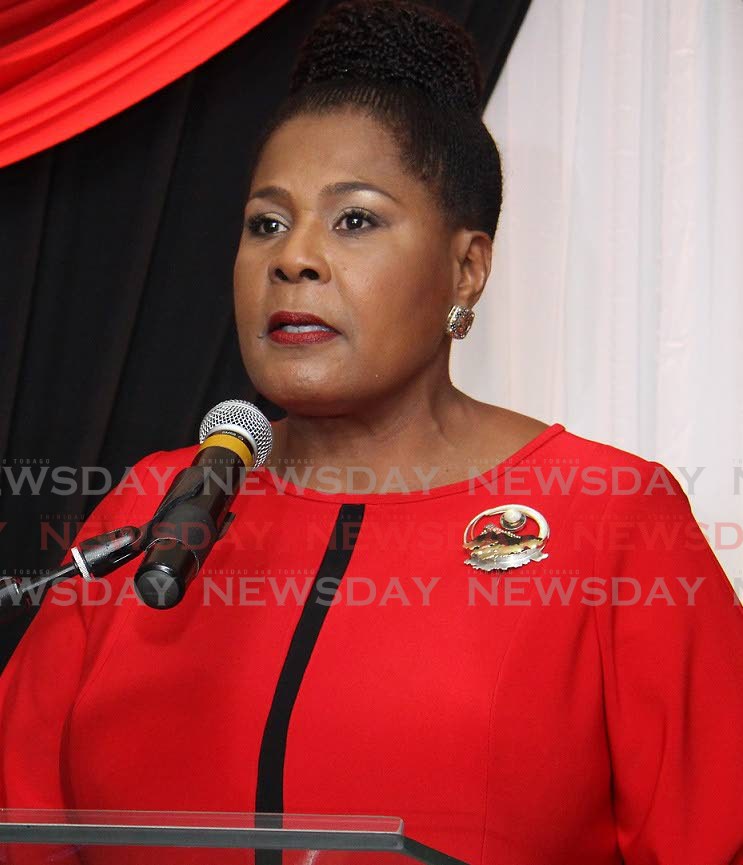Why do we need a president?

THE EDITOR: As the sun sets on the unremarkable tenure of outgoing President Paula-Mae Weeks, the mad political mudslinging between Opposition and Government for a presidential nominee continues.
The 1976 Republican Constitution creates the farcical illusion that the President is formally chosen by an Electoral College consisting of members of both Houses of Parliament feigning independence.
In reality, the governing party or government always has its nominee selected as it has the majority. Therefore, the nomination of Israel Rajah Khan by the Opposition is just another example of failed political gamesmanship by the moribund leadership of Kamla Persad-Bissessar’s United National Congress. That is an injustice to Khan's years of practice in the legal profession.
Do we even need a president in TT as the Office of President is ceremonial at best? The President is the nominal source of executive power and, like the British sovereign, the President "reigns but does not rule." In actuality, executive authority is exercised by the Prime Minister and his or her Cabinet, on behalf of the President.
The President has the constitutional responsibility to ensure that the conventions of responsible government are respected. “Responsible government” is a principle that guarantees that the executive branch of government is accountable to the elected representatives in Parliament. The President can, however, exercise personal discretion, meaning that he or she can act independently of prime ministerial advice.
This ability to exercise personal discretion revolves around the President’s “reserve powers.” This is, however, rarely used, given that the President is essentially a creature of prime ministerial approval.
The Office of President appoints particular commissioners of state boards but even this is done upon the advice and direction of the Cabinet. The President also appoints Independent senators. Given, however, that the President is appointed by the Government it is unlikely that the President selected will be anti-government and it follows that it is likely that the Independent senatorial appointments will be anti-government.
The President signs and assents to bills from Parliament that give them the force of law. However, this is a rubber-stamping process and the President has no choice in the matter. The President may exercise the power of delay in some of these functions, but this delay is not indeterminate.
The President appoints certain so-called independent “creatures of the Constitution,” such as the Procurement Regulator and Integrity Commission, which have both failed the taxpayers of the nation.
What is known is that the Office of President enjoys the largesse of the State and receives a hefty salary for essentially eating and drinking. The iconic image of president Ellis Clarke with a glass of champagne on a yacht for Old Year's or president George Maxwell Richards’s Carnival fete best epitomises the uselessness of the presidency.
The political activism of president ANR Robinson is an example of the UNC’s incapacity to select a competent president in alignment with the government. The incompetence was reinforced with the UNC’s second presidential appointment of Anthony Carmona, who threatened about powers he had and didn’t have.
Prime minister Patrick Manning proffered the argument of an executive president, which perhaps has been the only real solution to do away with this colonial relic, but which never got very far.
The political utility of the office of the President should be debated in a post-modern colonial context. Instead, however, is the mad scramble for an appointee who will be living off the taxpayers while those very taxpayers continue to struggle and suffer with ever-increasing food inflation, deteriorating infrastructure, and healthcare accompanied by increasing crime.
Perhaps if the Office of President was an elected one it would be more acceptable in a modern democratic society, but then the challenge will be the extent of the powers to frustrate or undermine the government and Parliament. Unless the Office of President has a real role in the government structure it will remain a useless appendage that is only a drain on the treasury of TT.
DR DEVANT MAHARAJ
via e-mail


Comments
"Why do we need a president?"